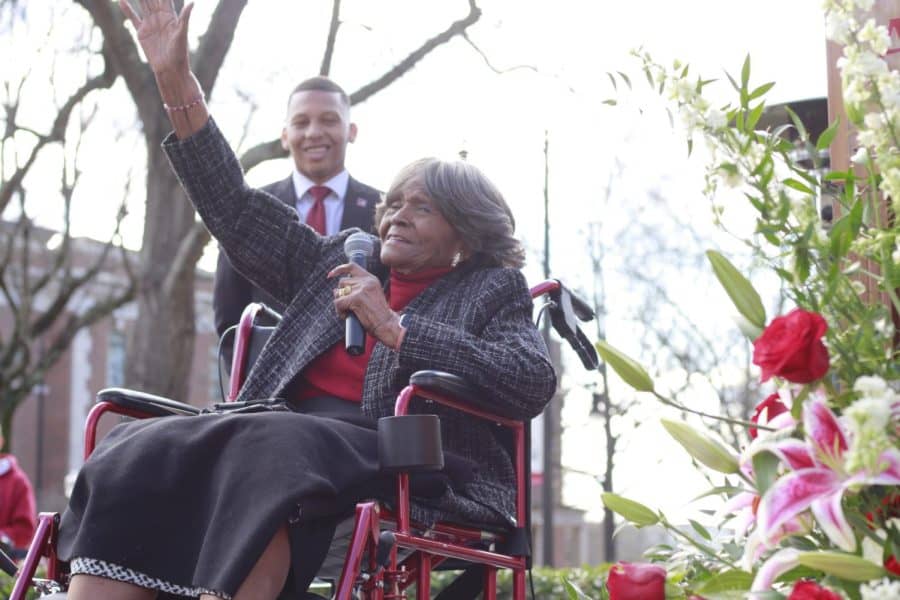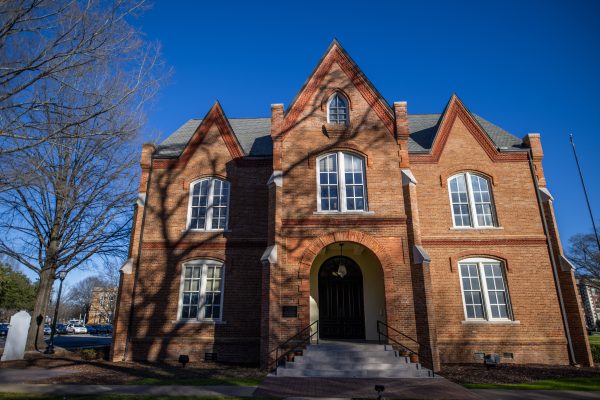Autherine Lucy Hall: University of Alabama dedicates building in honor of first Black student
February 26, 2022
The University of Alabama dedicated Autherine Lucy Hall in honor of its first Black student Friday afternoon.
Previously named for former Alabama governor and Ku Klux Klan leader Bibb Graves, the board of trustees renamed the building Lucy-Graves Hall on Feb. 3 in a nod to Lucy without removing Graves’ name from the building.
The system reversed course eight days later, instead naming the building solely in honor of Autherine Lucy Foster.
Lucy, now 92 years old, was the first Black student to enroll in the University in 1956. Three days after classes started, she was forced to seek shelter inside Bibb Graves Hall when students violently protested her enrollment on campus. The University suspended Lucy because of threats to her safety.
“How fitting is it that the building that houses our school of education — the building that once held you in the darkest hour of our university — will face the rising sun bearing your name as a monument to freedom and education now, education tomorrow and education forever,” Graduate Student Association President Quin Kelly said.
In 1988, the University annulled her expulsion and Lucy earned her master’s in education in 1992. In 2019, the University awarded Lucy with an honorary doctorate in education.
The state of Alabama granted her the title of master teacher on Friday, which the College of Education Dean Peter Hlebowitsh said would never be granted again.
“If I am a master teacher, I hope I am teaching you that love will take care of everything in our world, don’t you think,” Lucy said. “And it does not matter what color we are. That’s what I want to teach. It’s not your color. It’s not how bright you are. It is how you feel about those that you deal with. And if I am a master teacher, that’s what I hope to teach.”
UA President Stuart Bell said Lucy’s first steps on campus were a catalyst for change and opportunity.
“Your voice, your strength, and your determination blazed a trail and set an example for others to follow,” Bell said. “Even against insurmountable odds, you stepped forward to walk towards that future that many could not envision, but that you knew was possible.”
Leecora Rodgers, a senior majoring in public health and president of the UA National Pan-Hellenic Council, said the renaming is a step toward a more inclusive campus. The University is home to eight historically African American NPHC fraternities and sororities.
“Just being here on behalf of NPHC, my hope is that with this dedication and the University’s strides of making sure to keep us inclusive, is that more NPHC members will have their names on the walls,” Rodgers said.
NPHC Secretary Kayla Averett said the renaming shows that Black students and faculty who have made contributions to campus need to be recognized without anyone who diminished their work attached to them.
Ariana Sims is the president of Zeta Phi Beta, Lucy’s sorority. For Sims, honoring Lucy and removing Graves’ name from the building was the right move for the board of trustees.
“I think everybody’s aware of the controversy that was surrounding the first name change — having her next to a Klan leader,” Sims said. “They finally made a decision [to] give her her props and honor her the way she deserves.“
Lucy said this does not bookend change for Black students on campus.
“They should strive to exceed what I have done,” she said. “And that’s one of the good things that they should know. Don’t stop with me. Just keep going and try to bring as many with you as you can to The University of Alabama.”











